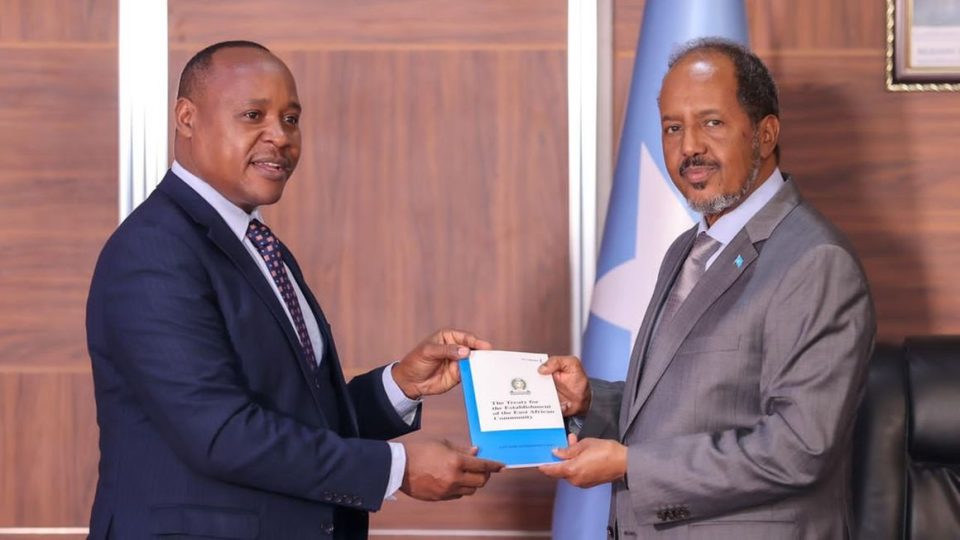Despite the benefits, Somalia’s membership raises critical questions about the bloc’s ability to ensure regional stability.
Somalia is poised to become the East African Community’s (EAC) eighth member state at the economic bloc’s December summit. This follows negotiations in August between the EAC and Somalia, hosted by the Kenyan government.
With the Democratic Republic of the Congo (DRC) joining in March last year, both memberships represent the EAC’s expansion across East Africa and the Great Lakes Region. The EAC also envisages Ethiopia and Djibouti becoming members. This potential growth could increase the bloc’s population to over 800 million – an immense boost to the EAC’s internal market.
EAC citizens are exempt from visa requirements and travel freely within the region. The prospect of Somalia-based insurgents moving into member countries, an unregulated influx of economic migrants, and smuggling of contraband and arms could make some EAC states jittery about allowing Somalia into the fold.
The recent launch of national identity cards in Somalia is timeous. The card could help facilitate free and fair elections in the country and potentially allow unfettered movement of citizens in the bloc. Identity cards could also help control economic crimes, money laundering and terror financing, and increase tax revenue collection.
Dr Hassan Khannenje, a Horn of Africa expert, told ISS Today that: ‘Somalia will be one of the least prepared countries [and] may not meet its obligations to the community when some member states are free-riding, especially when it comes to financial commitments.’ South Sudan and Burundi are yet to disburse US$27.4 million and US$7.44 million respectively, as their annual contributions that were due by the end of 2022.
Without reconciliation talks between Somalia and Somaliland and the resolution of the simmering Las Anod border conflict, Khannenje foresees a diplomatic impasse because some EAC members have a diplomatic presence in both capitals, Hargeisa and Mogadishu.
Another question is whether the EAC can help manage Somalia’s security challenges and maintain regional stability. With the planned withdrawal of the African Union Transition Mission in Somalia (ATMIS) and a reinvigorated counter-insurgency by the Somali National Army and clan militia, talks are gaining traction on the post-ATMIS security infrastructure.
The EAC’s approach and capacity on security issues was seen with its deployment of regional forces to the DRC just a few months after the Great Lakes country joined the bloc. The critical question is, would Somalia expect similar support? Some EAC partner states are ATMIS troop contributing countries, so such an arrangement would require careful negotiations given the increased threat al-Shabaab poses to Somalia joining the bloc.
The EAC’s proactive approach could help solve Somalia’s precarious security situation. On the political front, the bloc’s intervention through appointed dignitaries could enable Somalia’s Federal Government to engage in dialogue, popularise its offers for amnesty for al-Shabaab fighters, and enable grass-roots dialogue in conflict-affected communities.
It is crucial for the EAC to adopt measures that ensure East Africa optimises the benefits of Somalia’s entry. Potential problems must be addressed with foresight once the December EAC summit approves the newest member’s entry.
Read the original article on ISS.
Halkano Wario, Regional Organised Crime Observatory Coordinator – East Africa, ENACT and Rahel Hassen, Project Manager and Senior Researcher, East Africa, ISS Nairobi

